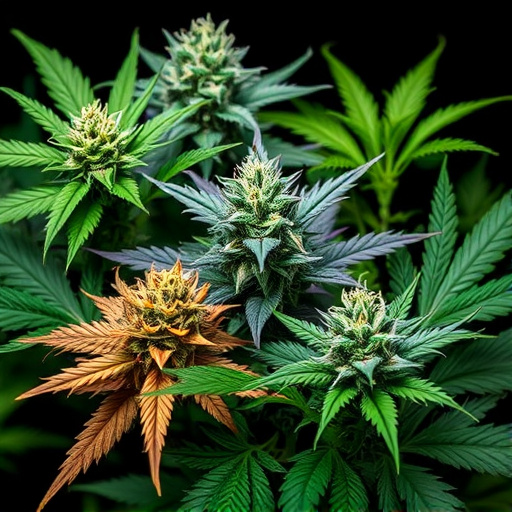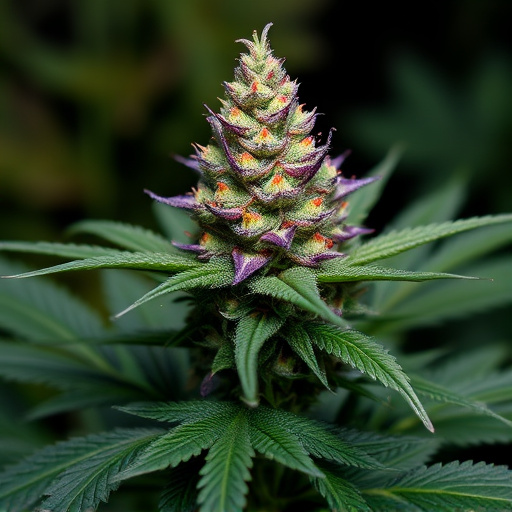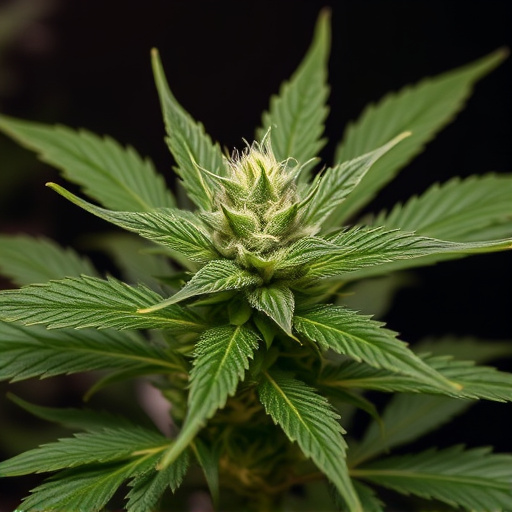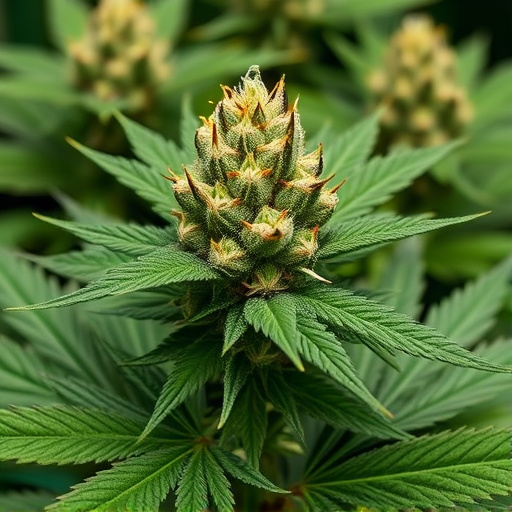High THC sativa strains are prized for their robust medical benefits, leveraging interactions with the body's endocannabinoid system to treat chronic pain, inflammation, anxiety, and various other conditions. Their unique combination of cannabinoids and terpenes creates the entourage effect, enhancing therapeutic outcomes. These strains, with potent tetrahydrocannabinol (THC) levels, offer intense psychoactivity effective for managing symptoms of neurodegenerative diseases, depression, stress, and appetite stimulation, making them a prominent choice in modern medicine for diverse healthcare needs.
Cannabis flowers have gained significant attention for their potential medical benefits, driven by their unique composition and active compounds like THC. This article delves into the world of cannabis, exploring how its floral structures play a pivotal role in providing therapeutic effects. We’ll examine the science behind THC’s impact on various medical conditions, with a specific focus on high THC sativa strains known for their distinct properties and effectiveness in treating specific ailments.
- Understanding Cannabis Flowers and Their Composition
- The Role of THC in Medical Applications
- Exploring High THC Sativa Strains for Specific Conditions
Understanding Cannabis Flowers and Their Composition
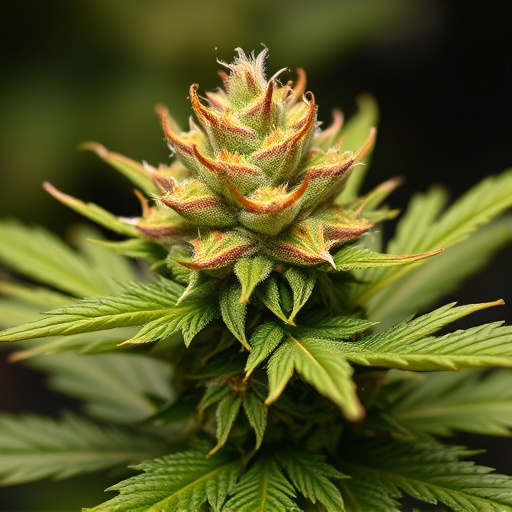
Cannabis flowers are the most recognizable and valuable part of the plant, offering a diverse range of medical benefits due to their intricate composition. These delicate buds are not just visually striking; they house a complex mix of chemical compounds, including cannabinoids and terpenes. The most well-known cannabinoid is tetrahydrocannabinol (THC), responsible for the plant’s psychoactive effects. High THC sativa strains, in particular, have gained popularity for their potential to alleviate various symptoms, such as chronic pain, inflammation, and anxiety.
The unique combination of these compounds contributes to what’s known as the entourage effect, where the whole plant works synergistically, enhancing the therapeutic benefits. Cannabis flowers’ composition allows them to interact with our body’s endocannabinoid system, which plays a significant role in maintaining homeostasis—the body’s natural balance. This interaction can lead to numerous medical advantages, making cannabis a promising treatment option for many conditions.
The Role of THC in Medical Applications
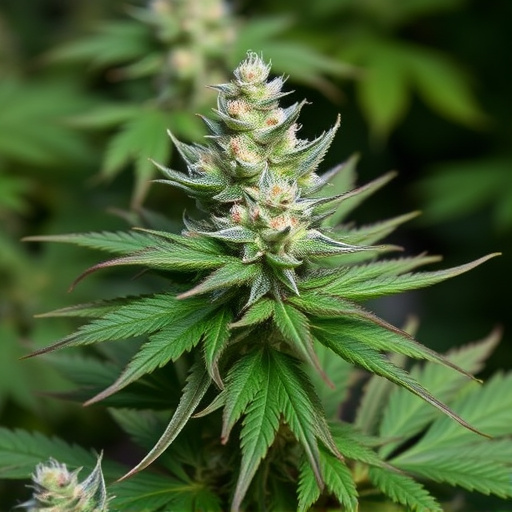
The active compound tetrahydrocannabinol (THC) is a key player in cannabis’s medical potential. While often associated with its psychoactive effects, THC has also demonstrated therapeutic value in various medical applications. High THC sativa strains, known for their potent levels of this cannabinoid, have been found particularly effective in treating conditions such as chronic pain, multiple sclerosis, and certain types of nausea and anxiety, especially when other treatments haven’t been successful.
THC interacts with the body’s endocannabinoid system, which plays a crucial role in maintaining homeostasis — the internal balance necessary for optimal health. This interaction can lead to anti-inflammatory, analgesic (pain-relieving), and antiemetic effects, making high THC sativa strains valuable tools in modern medicine. Moreover, their ability to stimulate appetite and improve sleep quality adds to their potential in managing conditions marked by weight loss and insomnia.
Exploring High THC Sativa Strains for Specific Conditions

High THC sativa strains have gained significant attention for their potential medical applications, offering a range of benefits tailored to specific conditions. The high tetrahydrocannabinol (THC) content in these varieties allows for more intense psychoactive effects, which can be particularly effective in managing pain, anxiety, and depression. Research suggests that the neuroprotective properties of THC may play a crucial role in alleviating symptoms of neurodegenerative diseases like multiple sclerosis and Alzheimer’s.
For conditions requiring relaxation and stress relief, such as chronic stress, insomnia, or muscle spasms, high THC sativa strains are often recommended. Their ability to induce euphoria and calm the mind can provide much-needed respite. Additionally, these strains may stimulate appetite, making them beneficial for patients undergoing treatment that causes nausea or anorexia. Exploring high THC sativa options allows medical users to tailor their treatments to their specific needs, leveraging the diverse effects of cannabis for optimal wellness.
Cannabis flowers offer a wealth of medical benefits, with high THC sativa strains particularly notable for their diverse applications. Understanding the composition and role of THC is key to harnessing these advantages. By exploring specific conditions and the unique properties of various strains, individuals can navigate the potential of cannabis for improved health and well-being.
